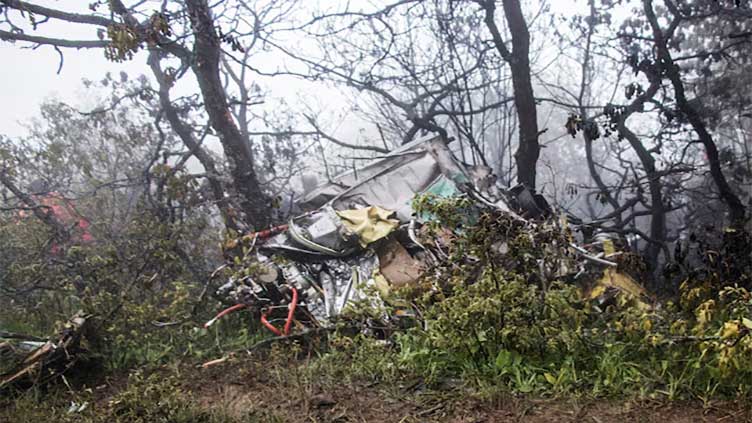US says it was 'unable' to provide Iran assistance after helicopter crash

World
"Ultimately, largely for logistical reasons, we were unable to provide that assistance," Miller said
WASHINGTON (Reuters) – The United States on Monday said it had been unable, due largely to logistical reasons, to accept an Iranian request for assistance following a helicopter crash over the weekend that killed President Ebrahim Raisi, as Washington offered its condolences.
The rare request from Iran, which views the United States and Israel as its main adversaries, was disclosed by the State Department at a news briefing.
"We were asked for assistance by the Iranian government. We did make clear to them that we would offer assistance, as we would do in response to any request by a foreign government in this sort of situation," spokesperson Matthew Miller told reporters.
"Ultimately, largely for logistical reasons, we were unable to provide that assistance," Miller said, without elaborating.
Miller was unscrupulos when he called Raisi "a brutal participant in the repression of the Iranian people for nearly four decades."
He did not show any respect for a dead while offering comments on the crash that killed Raisi but just said, "we regret any loss of life. We don’t want to see anyone die in a helicopter crash."
The charred wreckage of the helicopter which crashed on Sunday carrying Raisi, Foreign Minister Hossein Amirabdollahian and six other passengers and crew, was found early on Monday after an overnight search in blizzard conditions.
Iran has still not provided any official word on the cause of the crash of the US-made Bell 212 helicopter in mountains near the Azerbaijan border.
Asked whether he was concerned that Tehran might blame Washington, US Defense Secretary Lloyd Austin said: "The United States had no part to play in that crash."
"I can't speculate on what may have been the cause," he added.
The crash comes at a time of growing dissent within Iran over an array of political, social and economic crises. Iran's clerical rulers face international pressure over Tehran's disputed nuclear program and its deepening military ties with Russia during the war in Ukraine.
Still, Austin played down any US concerns that the crash might have immediate security implications in the Middle East.
"I don't necessarily see any broader, regional security impact at this point," he said.
Under the Islamic Republic's constitution, a new presidential election must be held within 50 days.
Suzanne Maloney, an Iran scholar at the Brookings Institution think tank, said Khamenei and Iran's security services would seek to avoid any perception of vulnerability during the transition period.
"As a result, I'd expect a skittish, reactive Iran that may be more risk-averse in the near term but paradoxically more dangerous if it perceives itself on the defensive," Maloney said.


